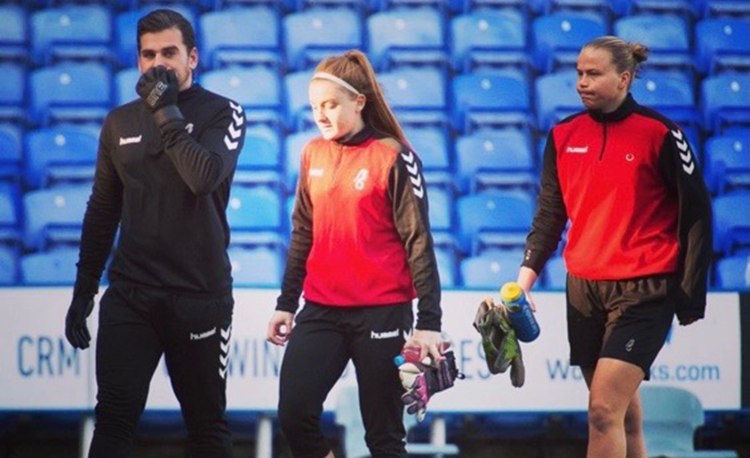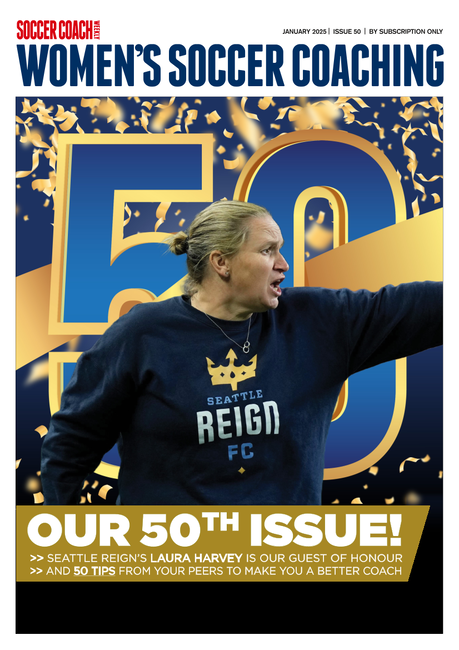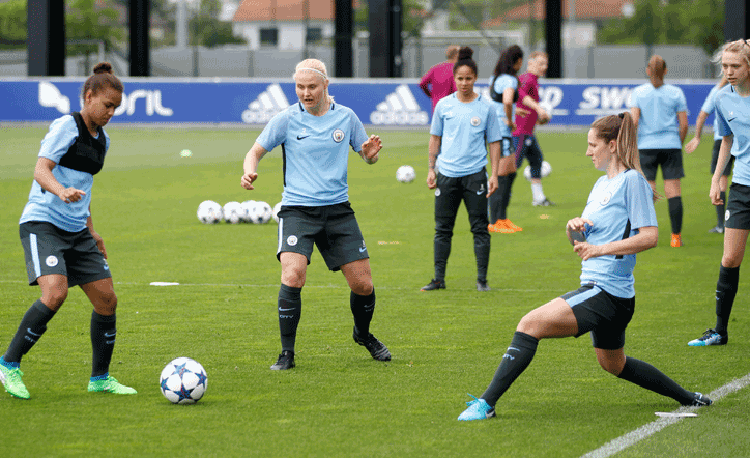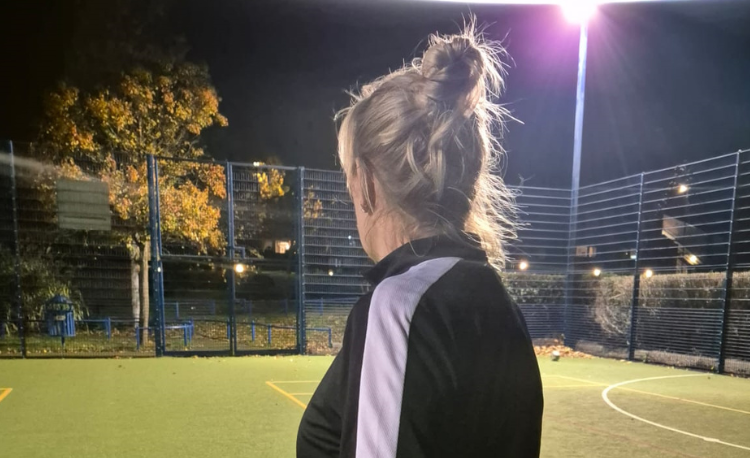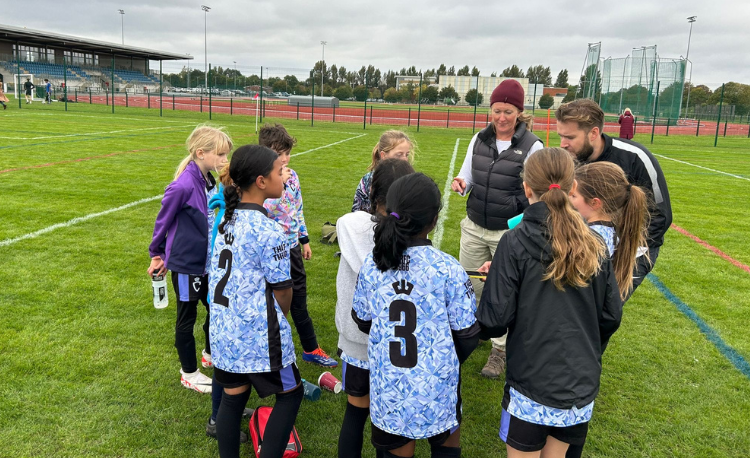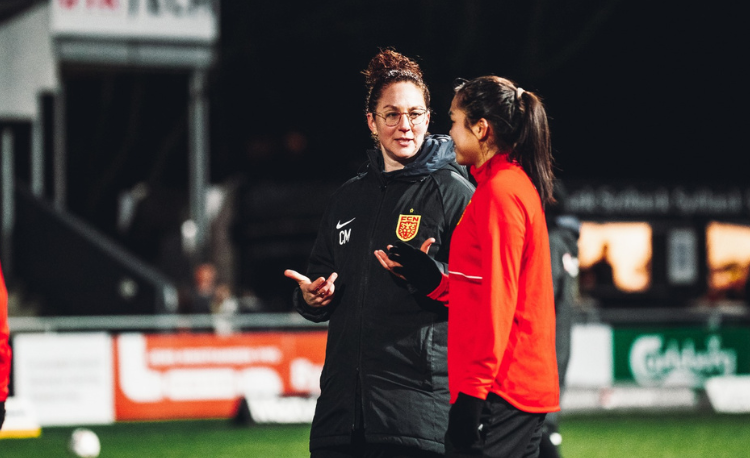You are viewing
1 of your 3 free articles
The psychology of goalkeeping
Bristol City Women goalkeeper coach Dan Smith explains how to tap into the minds of the loneliest players on the pitch
The goalkeeper - the most rewarding yet cruel position in football. You can be on cloud nine in the 89th minute and then suddenly a mistake in the 90th brings you back down to earth with a bang.
It takes a certain type of character to become a goalkeeper. They have to be headstrong and ready to deal with criticism, mostly from people who won’t have the first clue as to what they are talking about.
As goalkeeper coaches, we really do. We’ve been there, and we understand the psychological pressures of potentially going from hero to villain and back again.
A good goalkeeper coach plays such a vital role in helping keepers handle this pressure. More often than not, we will be the only member of a team’s coaching staff who can relate to what they’re going through.
Here are six tips on how you can tap into the minds of your last lines of defence...
PREPARE THEM WELL
Focus and concentration are two key factors that contribute to a good performance. The building blocks are put in place long before the game’s first whistle.
At City, this begins in training when we are working on our in and out of possession principles, how we can exploit the opposition and the ways in which they will look to exploit us.
Ensuring clarity during this period allows us to set out the process points which, as a goalkeeping unit, we need to aid the team’s performance.
Keeping that focus throughout the game is important, too. For me, this links in with how good a communicator your keepers are. In the games where they are less busy and not touching the ball as much, they need to keep themselves mentally engaged.
“More often than not, you’re the only one who can relate to what they’re going through."
They can do this from their starting positions and engagement lines to feel closer to the game, but for me, the big thing is communication.
Goalkeepers talking to their first and second line (defence and midfield), letting them know where players are, telling them to push up, drop back, shuffle right or left etc are all things that can keep shot-stoppers mentally in the game.
BACK THEM UP
Self-belief is one of the main qualities a goalkeeper needs. Not just belief in their own ability, but belief in what you and they are trying to achieve together.
A positive goalkeeper, who can remain that way even when the chips are down, will breed tremendous amounts of confidence in the rest of the team, who will trust their keeper more.
I never played at the highest level but I played in youth and senior games where I made mistakes (I’ve even let one through my legs at Wembley but we won’t talk about that!). But no matter whether I’m joining in a training session or playing for my team on a Saturday, I try to be as confident as I can be and be as positive as possible.
This extends to my coaching. A positive goalkeeper shows great communication, unwavering self-belief and leads by example. A goalkeeping coach should be no different.
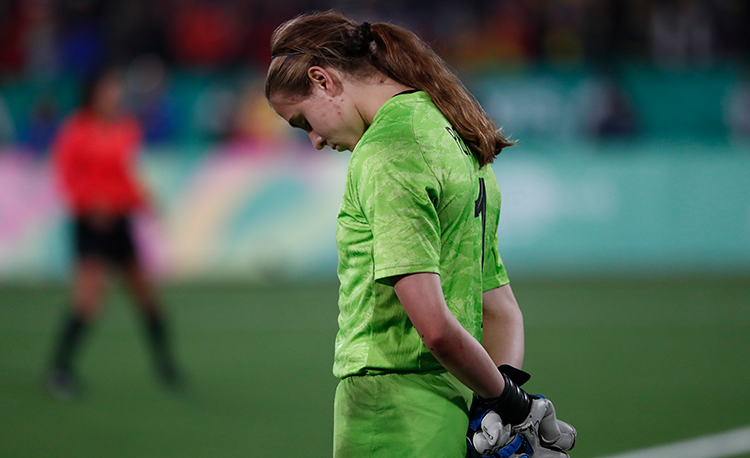
HELP THEM LEARN FROM ERRORS
Making mistakes is part and parcel of the game. Goalkeepers must recognise that not everything is going to be perfect in every game.
But it is paramount that one moment does not define either a performance or a whole season. Goalkeepers being able to move on quickly from mistakes is important - they will still have multiple opportunities within a game to prove how good they are. Remind them that it isn’t the end of the world if something bad happens - they just have to learn from it and move on.
Sometimes mistakes can play on a keeper’s mind and on occasion it may even take a few days to get over them. This is where coaches come in. Any errors, large or small, have to be seen as great learning opportunities and chances to grow as both a player and a person.
For this to happen, it is imperative that keepers are in an environment that allows them to be self-reflective, and that they are surrounded by like-minded people. They also have to be open to constructive criticism, no matter how hard it may be to take sometimes.
BUILD RELATIONSHIPS
Feedback works both ways, of course. Listen to your goalkeepers and let them know you are there for them, through thick and thin.
At Bristol City, myself, Sophie [Baggaley] and Beni [Benedicte Haaland] have an environment where we all can constructively criticise each other openly, but it’s all for the purpose of making us better every day.
There has been a lot of work to get us to this point. We had to build relationships, understand how each other works, create a culture and a DNA - and every day we’re still learning about each other.
One of the first things I said when I sat down with Sophie and Beni at Bristol City was that I would never say sorry for scoring against them in training. I look to expose them as much as I can and push them out of their comfort zone, because that’s when we learn the most. And I expect the same when they serve against each other too. It can drive standards and keep everyone on their toes.
Luckily, it is something they bought into straight away and I’m fortunate to be working every day with two incredible learners and goalkeepers.
POSITIVE IMAGERY
Everyone has different ways of dealing with anxiety before games, or the fear of making mistakes. I like to reinforce the importance of positive imagery on the day before a game.
If you’re sitting in bed thinking about the match, conjure up positive thoughts - that top bins save you’re going to pull off, or that 40-yard ping to help create a goal. It can all help leading into a game.
After a mistake has been made on the pitch, you might see keepers take a swig from their water bottle, or redo the strapping on their gloves. It’s all part of the mindset of resetting, where sports people and athletes take themselves to a state where they think ‘okay, that’s happened - let’s move on and become better’.
Related Files
BE ADAPTABLE IN YOUR METHODS
I’ve worked in both men’s and women’s football and in terms of the technical and tactical content, there isn’t much - if any - difference in the way you would deliver it. I approach working with a female keeper in the same way as working with a male one.
The quality of goalkeeper I am currently working with is on a par with those in the men’s game. But the psychology side of it is definitely a lot deeper - the keepers I work with are so eager to learn, and it’s an area I’ve managed to gain greater understanding in to aid me with coaching.
“The quality of keeper I’m working with is on a par with those in the men’s game."
For example, a constant of mine, when working with either gender, was my approach to service. Where possible, with younger age groups, I felt it would be better for the players to serve at each other, as I presumed it was a more realistic approach. My thought process was that I should get a realistic service while working on other areas of the keepers’ game without them knowing - throwing, kicking etc.
But I hadn’t thought about how it would affect the keepers. It ended up detracting from the quality of session sometimes. and I’ll get it I got it wrong. I was fortunate enough to see quite early on, when I worked with the first team at West Ham, the quality of players there and how much power and finesse they had in their strikes.
After one of the first sessions working with the goalkeepers at the time, Anna Moorhouse and Courtney Brosnan, I was told they wanted me to be challenging them a lot more with my service. and quickly it made me think - am I doing enough to prepare these young players for first-team football?
The short answer was no, I wasn’t. Luckily, I had some great people around me at the time at West Ham, who told me where I could Improve. I changed my approach entirely and where needed I now provided a better quality of service, while keeping elements of the players serving to each other but now over a shorter distance.
Overall, working in the women’s game is the best decision I’ve ever made. I have found it much more rewarding and it has made me a much better coach. You have to think more about why you’re doing what you’re doing.
If I’m honest, the boys in my Under-18s tend to just go with whatever it is you’re telling them, and there wasn’t really much of a challenge from them.
Whereas, working in the women’s game, I have definitely found I need a ‘why’ behind everything I’m doing because I am challenged more by the players, and that’s from Under- 10s all the way to first-team level. WSC
Newsletter Sign Up
Newsletter Sign Up
Discover the simple way to become a more effective, more successful soccer coach
In a recent survey 89% of subscribers said Women's Soccer Coaching makes them more confident, 91% said Women's Soccer Coaching makes them a more effective coach and 93% said Women's Soccer Coaching makes them more inspired.
*includes 3 coaching manuals
Get Inspired
All the latest techniques and approaches
Women's Soccer Coaching offers proven and easy to use soccer drills, coaching sessions, practice plans, small-sided games, warm-ups, training tips and advice.
We've been at the cutting edge of soccer coaching since we launched Soccer Coach Weekly in 2007, creating resources for the grassroots youth coach, following best practice from around the world and insights from the professional game.
